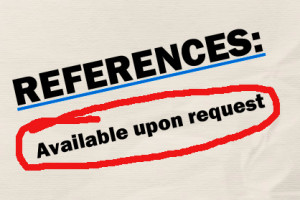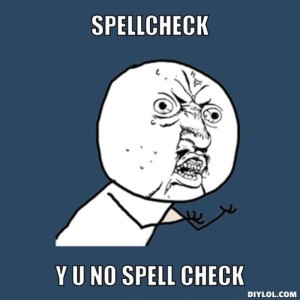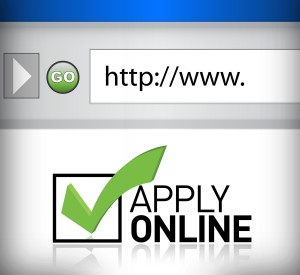 This happens to everyone. You apply for a job and nothing. You might get the “don’t call us, we’ll call you email” still, nothing… crickets. You feel like you are back in high school and everyone breaks up with you by not calling. Or maybe you are playing golf with a buddy and at the turn he asks “When did you and Caroline break up?” My answer “We haven’t.” (OK, I should let that one go)
This happens to everyone. You apply for a job and nothing. You might get the “don’t call us, we’ll call you email” still, nothing… crickets. You feel like you are back in high school and everyone breaks up with you by not calling. Or maybe you are playing golf with a buddy and at the turn he asks “When did you and Caroline break up?” My answer “We haven’t.” (OK, I should let that one go)
Many of us go through the job search like this. We think we are out of the running for a job but we are actually still being considered. Or more frequently we are counting on the company contacting us but they no intention of doing so. First, I will talk about the why people get ghosted then what to do about it.
WHY
Recruiters are like the rest of us. They have jobs. They usually have more work than they have time for and if they don’t get their job done the company will find someone else who will get it done. People tend to focus on what is measured, and candidate satisfaction is usually NOT a metric for recruiters. Compound that with the fact that most companies do not care about the candidate experience because you are not their customer.
Some companies receive 100’s or 1000’s of applicants, many of whom are not even close to being qualified for the position. Imagine trying to drive down a freeway if they let everyone on freeways; pedestrians, bicycles, horses, etc… it would be a MESS! That is why most freeways have a minimum speed and only allow motorized vehicles. Unfortunately there is nothing preventing unqualified people from applying. To fix this companies run algorithms in their ATS to select the “most qualified” candidates. If you do not have the right keywords then you may be out of luck.
Another way recruiters handle a large number of applicants is to just take a chunk at a time to work with. If they do not find anyone in that group then they grab another chunk. Maybe you applied at the wrong time.
But there are some of us who do care but remember no good deed goes unpunished. I have followed up with people to let them know they did not make the cut and received emails like this:
Why did you email me to tell me I wasn't being considered for the job? Thank you for wasting my time.
Your company is full of idiots, I wouldn't want to work there anyway.
After a while these “Ricky Bobbys” wear you down and you stop replying to everyone that applies.
HOW TO PREVENT GHOSTING
First, DO NOT just apply, Apply and Adjure. You need to be you own advocate. Remember the dating analogy? You want to show interest but you don’t want them asking about restraining orders. Don’t be a stalker. It is a fine line and it is different for everyone so you need to pay attention to the signs.
Be patently persistent. Since you ALWAYS ask what the next step is in the process and when you should hear from them, you know when to follow-up. If they said you should hear something by Friday, then I feel it is a good idea to follow-up Saturday if you have not heard anything. When following up always assume the best and be understanding. Here are some BAD examples that I have received with my unwritten response below each one:
You said I would hear by Friday, it is now Saturday.
This is a statement, not a question. No response necessary 🙂
Did you receive my previous email with my questions???
The excessive use of “?” is the main issue here.
I am assuming that you have hired someone else since I have not heard from you.
I will now.
Here are some much better responses that I have received:
You had mentioned that you would touch base with me Friday. I know the week can get away from you but I want to make sure I have not missed your call or email.
I am still very excited about the opportunity. Please let me know if you need any additional information.
You also want to follow-up with anyone you know that is an employee at the company you are interviewing with. They may be able to nudge a decision maker in your favor if they are on the fence. An employee may also have inside information on the position that they can provide. If your contact at the company is a friend of yours you can ask detailed information but if it is an acquaintance, you may want to keep things more general:
I interviewed last week and I hope to have an opportunity to make it to the next round of interviews.
I feel like my interview went well. They mentioned that they were making a decision last week but I have not heard anything, keep your fingers crossed.
So don’t assume you have been ghosted until you do your due diligence. They may have not seen your information at all. Your goal is to have the hiring manager or recruiter to reach into the black hole, that is their ATS, and pull your information out. There is no ONE right way to get this done but you want to work as many avenues as possible.
Do your best to stay positive in your job search. Negativity is no bueno.
Al
Ambition is the path to success. Persistence is the vehicle you arrive in.
Bill Bradley
 Lee Desser recently wrote a blog post: Are Happy Faces in Professional Communication So Bad? Lee brings up a good point… know your audience.
Lee Desser recently wrote a blog post: Are Happy Faces in Professional Communication So Bad? Lee brings up a good point… know your audience.






